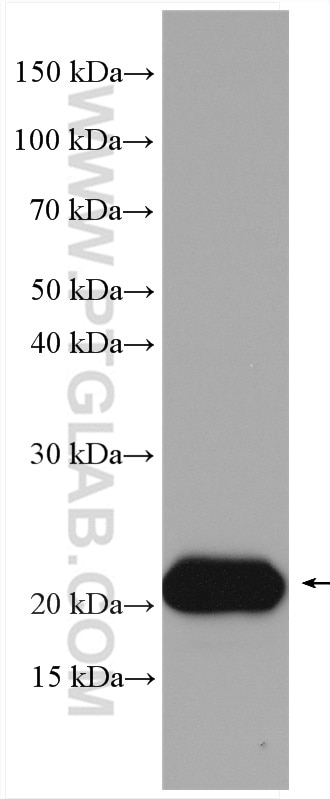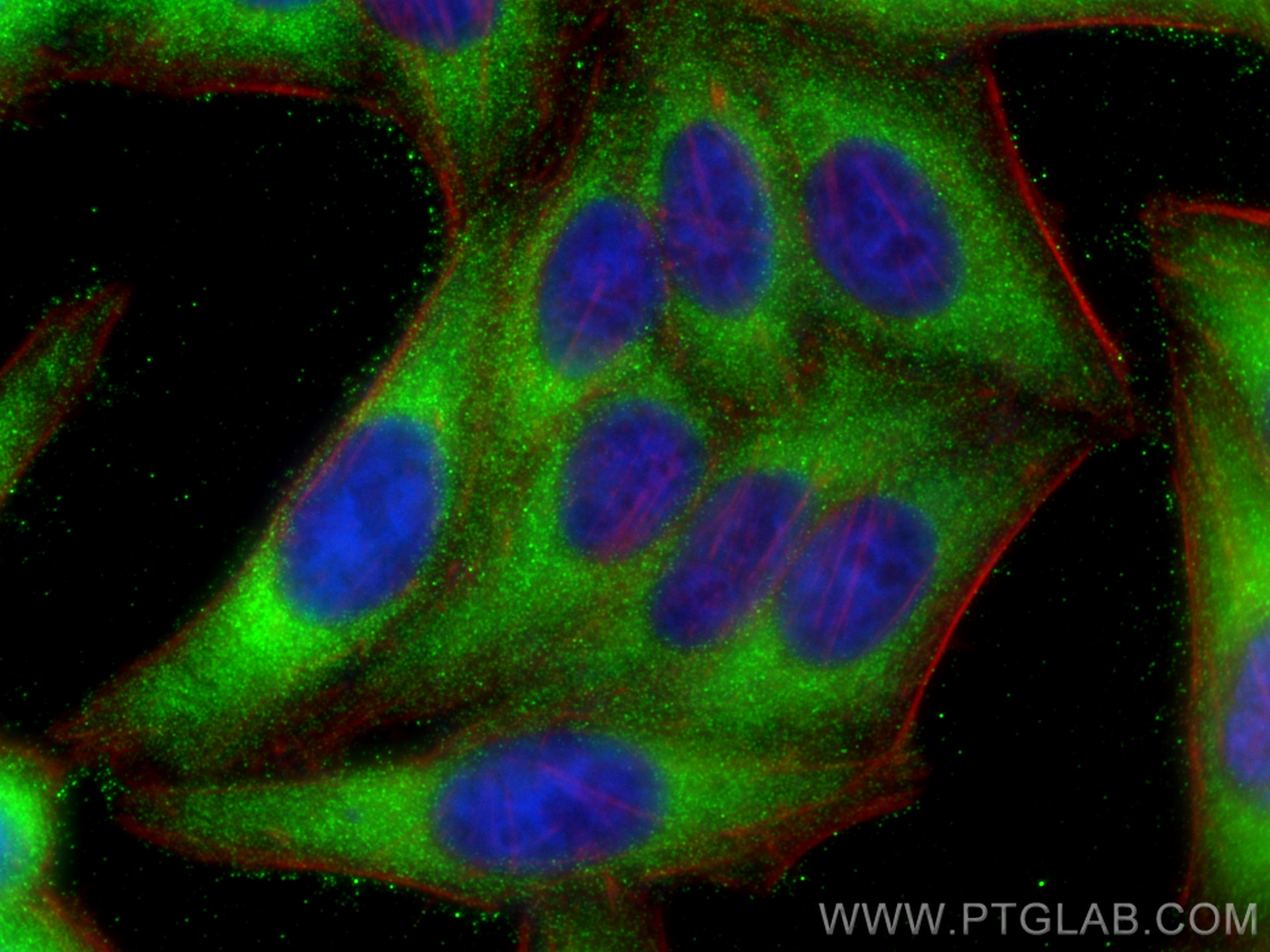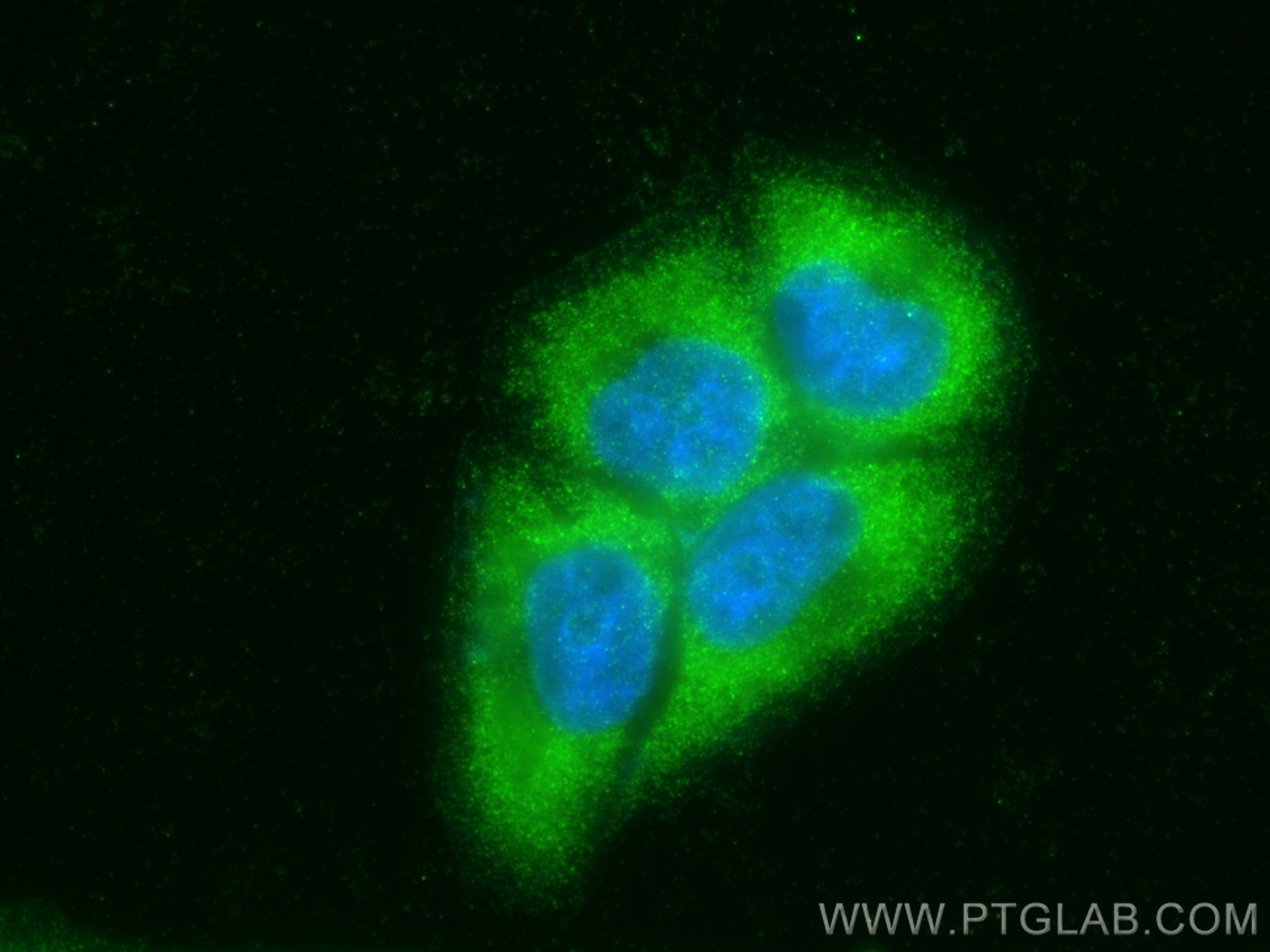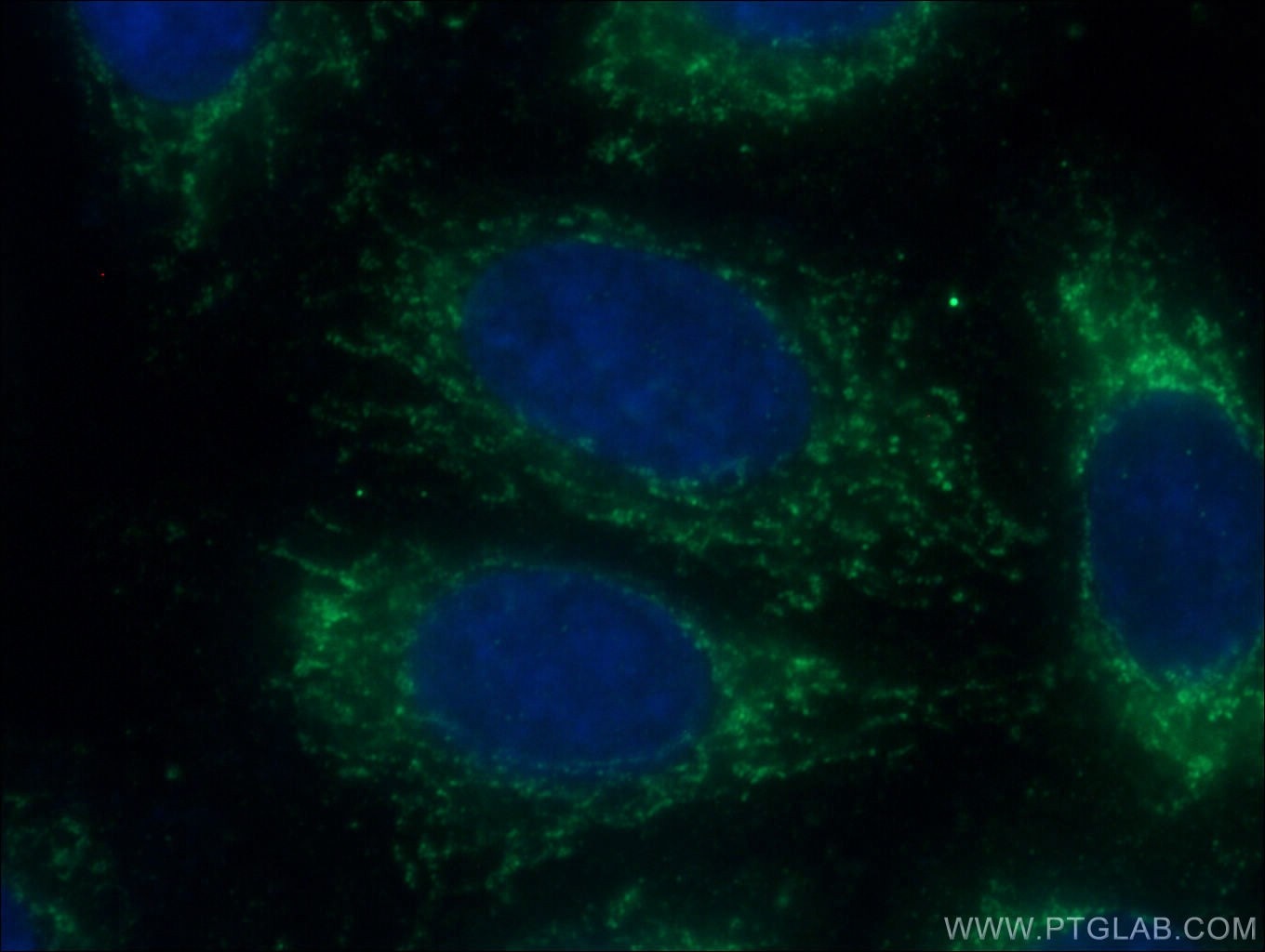IFN-beta Polyklonaler Antikörper
IFN-beta Polyklonal Antikörper für WB, IF/ICC, ELISA
Wirt / Isotyp
Kaninchen / IgG
Getestete Reaktivität
human und mehr (1)
Anwendung
WB, IHC, IF/ICC, ELISA
Konjugation
Unkonjugiert
Kat-Nr. : 27506-1-AP
Synonyme
Geprüfte Anwendungen
| Erfolgreiche Detektion in WB | Recombinant protein |
| Erfolgreiche Detektion in IF/ICC | HepG2-Zellen, L02-Zellen |
Empfohlene Verdünnung
| Anwendung | Verdünnung |
|---|---|
| Western Blot (WB) | WB : 1:5000-1:50000 |
| Immunfluoreszenz (IF)/ICC | IF/ICC : 1:200-1:800 |
| It is recommended that this reagent should be titrated in each testing system to obtain optimal results. | |
| Sample-dependent, check data in validation data gallery | |
Veröffentlichte Anwendungen
| WB | See 12 publications below |
| IHC | See 7 publications below |
| IF | See 3 publications below |
Produktinformation
27506-1-AP bindet in WB, IHC, IF/ICC, ELISA IFN-beta und zeigt Reaktivität mit human
| Getestete Reaktivität | human |
| In Publikationen genannte Reaktivität | human, Maus |
| Wirt / Isotyp | Kaninchen / IgG |
| Klonalität | Polyklonal |
| Typ | Antikörper |
| Immunogen | IFN-beta fusion protein Ag26326 |
| Vollständiger Name | IFN beta |
| Berechnetes Molekulargewicht | 187 aa, 22 kDa |
| GenBank-Zugangsnummer | BC069314 |
| Gene symbol | IFN beta1 |
| Gene ID (NCBI) | 3456 |
| Konjugation | Unkonjugiert |
| Form | Liquid |
| Reinigungsmethode | Antigen-Affinitätsreinigung |
| Lagerungspuffer | PBS with 0.02% sodium azide and 50% glycerol |
| Lagerungsbedingungen | Bei -20°C lagern. Nach dem Versand ein Jahr lang stabil Aliquotieren ist bei -20oC Lagerung nicht notwendig. 20ul Größen enthalten 0,1% BSA. |
Hintergrundinformationen
Interferon-beta (IFN-β) is a type I interferon, which is a group of signaling proteins made and released by host cells in response to the presence of several viruses, including double-stranded RNA produced by many viruses. IFN-β is a single protein species and is molecularly related to IFN-α subtypes, although it is antigenically distinct from them. It is mainly produced by fibroblasts and plays a crucial role in the innate immune response against viruses. IFN-β can inhibit viral replication by interfering with the virus's RNA or DNA, thus suppressing viral growth. It also enhances the cytotoxic activity of natural killer (NK) cells and promotes the expression of major histocompatibility complex (MHC) class I molecules.
Protokolle
| PRODUKTSPEZIFISCHE PROTOKOLLE | |
|---|---|
| WB protocol for IFN-beta antibody 27506-1-AP | Protokoll herunterladen |
| IF protocol for IFN-beta antibody 27506-1-AP | Protokoll herunterladen |
| STANDARD-PROTOKOLLE | |
|---|---|
| Klicken Sie hier, um unsere Standardprotokolle anzuzeigen |
Publikationen
| Species | Application | Title |
|---|---|---|
J Mater Chem B Magnetic hyperthermia induces effective and genuine immunogenic tumor cell death with respect to exogenous heating | ||
Int Immunopharmacol Polysaccharides from Platycodonis Radix ameliorated respiratory syncytial virus-induced epithelial cell apoptosis and inflammation through activation of miR-181a-mediated Hippo and SIRT1 pathways. | ||
Amino Acids Escherichia coli infection activates the production of IFN-α and IFN-β via the JAK1/STAT1/2 signaling pathway in lung cells. | ||
BMC Vet Res The role of IBV PL1pro in virus replication and suppression of host innate immune responses | ||
Cell Death Dis Intracellular virus sensor MDA5 exacerbates vitiligo by inducing the secretion of chemokines in keratinocytes under virus invasion. | ||





